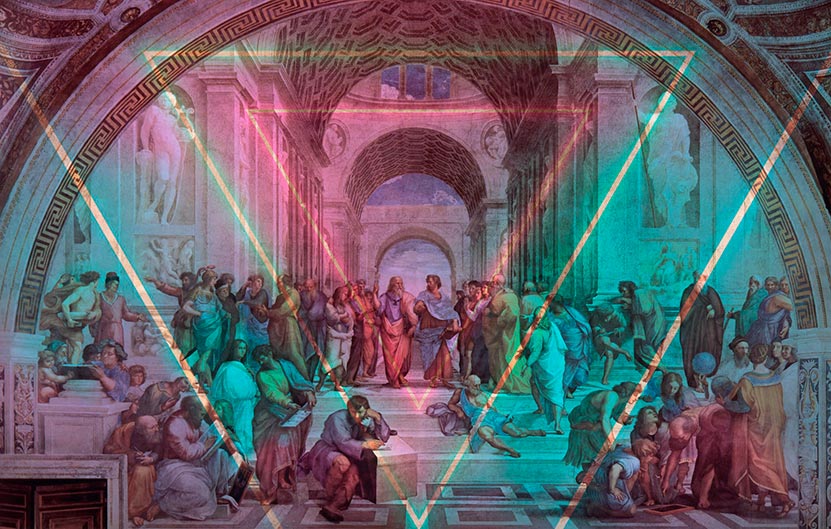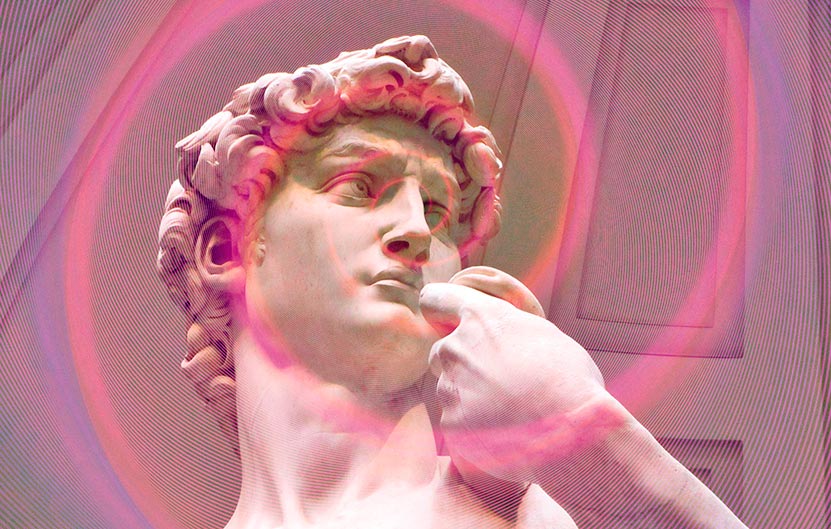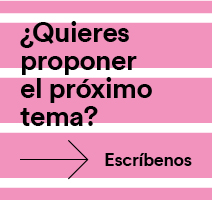Give your opinion
A new humanism

What is the importance of Humanities for the development of democracy and freedom? Eva María Infante Deus, a first year student of the Degree at Philosophy, Politics and Economics (PPE)reflects on the urgent need for a greater presence of Humanities in the contemporary world.

Throughout history, all civilisations and cultures have been concerned with the Education of young people on the basis of their de facto future integration into society.
Taking the West as reference letter , we could highlight the importance of Education for young people in Classical Greece and in Republican and Imperial Rome. In both cases, it had a clear teleological vision: to train future citizens who would participate virtuously in politics.
The notions of rhetoric, oratory and the knowledge of great works were the mainstay of the training. Although knowledge was generally restricted to the wealthier classes, it had a clear humanist sense and was oriented towards public life. The human being in his most Aristotelian conception was a citizen, a political animal (Zoon Politikon) and could not be understood outside the social and political framework of the city.
In medieval times, classical knowledge survived thanks to the impulse of scholasticism and to Christian and Muslim copyists. In this period, the universities, understood by Alfonso X "City Hall between professors and students", continued with the teaching of septem liberal arts (divided into trivium and quadravium), reinforcing western classical culture with Christian doctrine.
From the Renaissance period onwards, but especially with the Enlightenment, there was a growing interest in experimental sciences and with them, methodological questions. Also, at this time, the "modern" educational system began to be defined, more focused on obtaining results and the research internship and less on purely subjective questions.
During the 19th century, universities began to split up to focus on individual disciplines, thus maximising the depth of choice. This trend will be reinforced by the birth and consolidation of liberalism which, because of its more competitive side, reinforces the achievement of tangible results. In this context, teaching of the liberal arts is relegated to very specific paths.

Nowadays, most universities offer a highly specialised curriculum, which leaves little or no room for the student's development staff . Cultural issues are generally relegated to the private sphere, thus weakening the links between individuals and their civilisation. A neutral, or empty, public space emerges in which a multitude of cultures and traditions "coexist" without any of them really expressing themselves.
It is in this context that the contemporary individual emerges, who, educated in a liberal educational system, has grown up following an idea of freedom that philosophers such as Kant brand as false . Precisely because the classical pathway affirmed that freedom is not a natural condition with which we are born, but that we acquire it through internship, by knowing oneself and by being able to govern oneself through reason and the cultivation of virtue, the liberal arts fulfilled the function of "liberating" the person, understood as an autonomous citizen.
With the disappearance of these from the modern system educational , the Kantian conception of man, who is not only understood as a freer person, but also as a fundamental pillar of the res publica, is lost. Meanwhile, the vision of an isolated individual is catalysed, who, far from being an active political subject, separates public and private notions, thus leaving a cultural void.
With the configuration of this new order, a paradox emerges. For we have a civilisation that defines itself as free in the most optimistic sense of the word, but which increasingly demands safety nets. Isolated individuals or those with weaker constitutive networks need pillars of security, as, often lacking their own or shared resources, they tend to look for a larger state, generating a growing statism that is misunderstood by the liberal project . As we can see, this is one of the internal contradictions promoted by the modern project educational .
On the other hand, with the formulation of an individual who is no longer a compulsory part of the res publica, the system of democratic participation is weakened. So much so that, in recent years, we can observe a deterioration of democratic processes and greater polarisation in society. We see that it is not only technological progress or progress that is important, because it is of little use if there is no humanistic understanding of it. Precisely for this reason, it would be necessary to incorporate more transversal and dynamic curricula at all levels of teaching , which take into account more variants of human nature and which are capable of promote the critical thinking of citizens.
But how can we reconcile a programme in which Humanities remains relevant in an age that values innovation and progress above all?
By taking an interest in history, in literature, in Philosophy, in culture, in cultural heritage, in bioethics, only in this way can we achieve sustainable and realistic progress for human beings and the societies they constitute. If we continue to create an empty or falsely filled framework, it will collapse before we know it. As individuals - and as citizens - we have to be able to look beyond ourselves and the present, we have to take perspective and let a new humanism emerge to overcome the morass in which we find ourselves.
If you liked the article, you might be interested in one of our Degrees!










